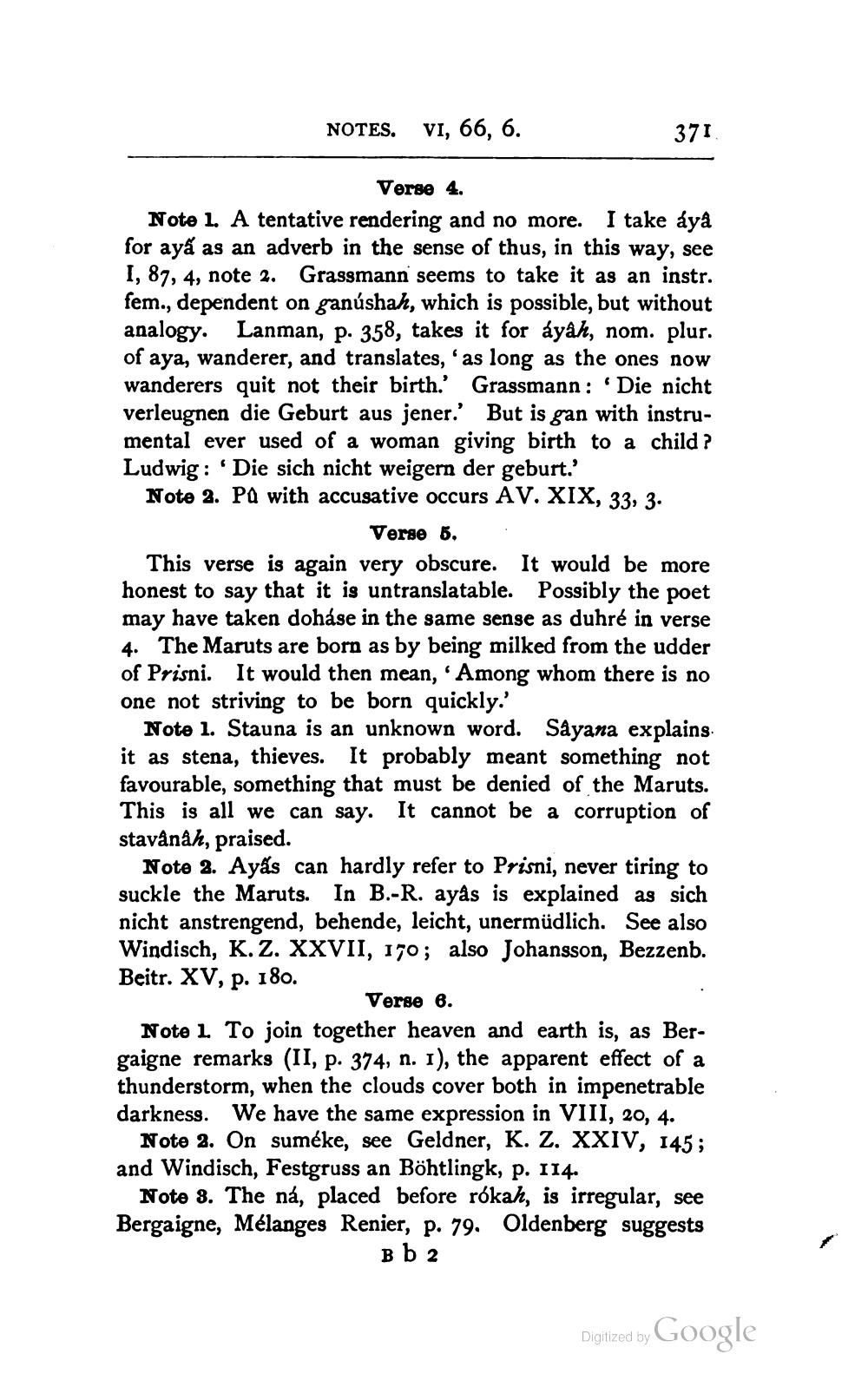________________
NOTES. VI, 66, 6.
371
Verse 4. Note 1. A tentative rendering and no more. I take aya for ayá as an adverb in the sense of thus, in this way, see 1, 87, 4, note 2. Grassmann seems to take it as an instr. fem., dependent on ganúshah, which is possible, but without analogy. Lanman, p. 358, takes it for ayah, nom. plur. of aya, wanderer, and translates,' as long as the ones now wanderers quit not their birth.' Grassmann : 'Die nicht verleugnen die Geburt aus jener.' But is gan with instrumental ever used of a woman giving birth to a child ? Ludwig: 'Die sich nicht weigern der geburt.' Note 2. PQ with accusative occurs AV. XIX, 33, 3.
Verse 6. This verse is again very obscure. It would be more honest to say that it is untranslatable. Possibly the poet may have taken doháse in the same sense as duhré in verse 4. The Maruts are born as by being milked from the udder of Prisni. It would then mean, 'Among whom there is no one not striving to be born quickly.
Note 1. Stauna is an unknown word. Sayana explains. it as stena, thieves. It probably meant something not favourable, something that must be denied of the Maruts. This is all we can say. It cannot be a corruption of stavânåh, praised.
Note 2. Ayas can hardly refer to Prisni, never tiring to suckle the Maruts. In B.-R. ayâs is explained as sich nicht anstrengend, behende, leicht, unermüdlich. See also Windisch, K. Z. XXVII, 170; also Johansson, Bezzenb. Beitr. XV, p. 180.
Verse 6. Note 1 To join together heaven and earth is, as Bergaigne remarks (II, p. 374, n. 1), the apparent effect of a thunderstorm, when the clouds cover both in impenetrable darkness. We have the same expression in VIII, 20, 4.
Note 2. On suméke, see Geldner, K. Z. XXIV, 145; and Windisch, Festgruss an Böhtlingk, p. 114.
Note 8. The ná, placed before rókah, is irregular, see Bergaigne, Mélanges Renier, p. 79. Oldenberg suggests
B b 2
Digitized by
Digized by Google




